A B2B CRM: what is it?
B2B (business-to-business) - trade relations between legal entities; the focus of a business to produce goods and services for another business, and not for an ordinary buyer. CRM systems for B2B are an essential tool for the development of the company and increase its efficiency. Thanks to this, many tasks are solved, routine tasks and problems are removed, and interaction with customers is improved.
Its key task is to collect customer data, organize information and build convenient, optimized communication with each of them. In fact, CRM optimizes all processes of working with a potential, regular and even former (when appropriate) client. For example, a sales manager may use a CRM system for mailing or cold calling customers. .jpg?width=1427&name=sale-findmycrm%20(1).jpg)
What is the difference between B2B and B2C CRM?
In their work, B2B companies are guided by the needs of other businesses. Therefore, they have significant differences from sales to individuals. Since the business owner must initially know the exact purpose of the purchase, such sales require great skill from managers.
The business-to-business market has a number of differences from the B2C segment. There are fewer sellers and buyers here. And therefore each client is much more valuable. Consumers are less likely to succumb to emotions, purchase decisions are made longer, sometimes for months.
At the same time, prices play a lesser role, since employees who often buy goods and services do not pay out of their own pocket. B2C CRM helps companies focus more on increasing the number of visitors directly to their company or stores, as they deal with direct consumers.
[Related Article: CRM for B2B And B2C: What it is & How is it Different?]
Why should you use a B2B CRM?
CRM systems (Customer Relationship Management) are designed to help businesses manage customer relationships and sales. But, before installing such a system, you need to clearly describe all business processes, determine which segment the organization belongs to, and, based on this data, identify software requirements.
To develop a company, scale a business and increase sales, you will definitely need up-to-date system knowledge about marketing and digital project management. To set and work with KPI, to control the budget, specialists and contractors, to competently draw up sales funnels and, finally, to increase the number of orders through the website, social networks, trading platforms, chat bots, e-mail newsletters and much more.
The ability of the CRM system to adapt to business tasks makes it universal for different fields and companies of different composition. You should not believe the prejudice that the CRM system is a program only for large businesses. In small companies, where employees often combine several positions, CRM will also be an indispensable assistant.
A CRM system as a customer relationship management tool is one of the best investments a business owner can make to increase sales and increase customer loyalty. It's hard to find things that can help grow a business better.
-4.jpg?width=1620&name=sale-findmycrm%20(2)-4.jpg)
The Advantages of a B2B CRM
To evaluate the effectiveness of implementing a CRM system for B2B, it is necessary to understand what benefits it provides. In addition to organizing work and monitoring employees, the following opportunities open up:
Visualization (working with leads).
Since there is a large number of actions that occur when working with a customer, it is necessary to control the entire chain. This is best done through visualization. Conducting agreements, negotiations, exchanging documents, working with tenders - all this can be controlled visually and you can understand at what stage the work with a specific client is now.
Effective sales process.
First, CRM is made for B2B sales. This is the main purpose of this technology. It includes a set of tools that allow you to organize the sales process, starting from data collection, to work with the catalog, payment systems and execution of deals. Individual development allows you to implement effective tools that increase the company's sales.
Verified data and reporting.
The system collects reports, statistics, calculates the effectiveness of deals, records price changes, automatically changes them on the catalog site, as there is the possibility of integration. Reports guarantee a clear understanding of the general picture of the situation in the company and in work with a specific client.
Funnels in CRM for B2B sales.
You can use ready-made solutions or create your own sales funnels with a personalized approach. Tracking the funnel, making changes during work allow you to find a flexible approach to each client and adapt to their needs.

[Related Article: CRM for Sales and Marketing: The Role and Benefits]
What Role Does CRM Play in B2B Marketing?
The use of CRM in the B2B sector will help in solving various problems and increase the efficiency of employees. The CRM system in the B2B segment has the ability to manage a variety of data: from the cost of purchases, transactions, logistics services to data on each client and sales forecasts.
CRM for B2B sales will help control everything, increase employee efficiency, facilitate routine tasks, and automate part of the work. This is a very necessary and important tool in the field of enterprise activity.
Individual technology allows you to create almost any functionality. Due to its flexibility, you can customize the tool for your business and stay ahead of competitors, increase interaction with partners and customers, and optimize the work of the entire company.
But there are a number of tools that must be implemented in CRM for B2B:
- database and storage of all information in one place with the possibility of distribution of access rights;
- segmentation of the database, distribution of customers by categories, which allows appointing responsible managers and building logical communication with the client;
- building a complete chain of the sales process, control of each stage;
- assessment of the performance of each employee, collection of data and reports on their work, improvement of the quality of work by developing recommendations and an action plan;
- sales management tools, transaction support at every stage, starting from reading the catalog, ending with document flow and organization of logistics;
- the ability to individually customize all tools to the needs of the company and each manager separately;
- integration with third-party programs necessary for the company's work, such as the site, telephony, social networks, and others.
In addition to these functions, other unique tools can be developed that expand business opportunities. The CRM system for the B2B segment will help digitize the business and manage it using a computer and even a smartphone.
-Mar-27-2024-11-19-12-5693-AM.jpg?width=1619&name=work-findmycrm%20(2)-Mar-27-2024-11-19-12-5693-AM.jpg)
CRM Strategies for Business-to-Business
It is worth noting that, in general, this strategy is the company's analytical information about the most effective work of its employees with potential clients and customers. The CRM strategy optimizes the relationship between clients and businesses, focusing on client-orientation.
In its essence, this is the most detailed instruction, which prescribes how the program should work, in order to increase the efficiency of the sales department. At the same time, it is possible to develop an optimal strategy only after the company has conducted an audit showing all the strengths and weaknesses of the work of the sales department employees.
Determine the goals and objectives of the company
For the successful implementation of the CRM project, it is necessary to set short-term and long-term goals, specify the goals that the company plans to achieve, and develop a strategy that defines customer relations. Strategic goals determine what benefits the company plans to receive from the implementation of CRM.
Analyze the current situation in the company
The speed of work with orders, the quality of data collection and processing, as well as the coherence of the team's work depend on a properly configured system. First you need to conduct a deep analysis of the market and the company, determine the points of growth and development strategy.
Describe a potential client
The portrait of an ideal client is a collective image compiled on the basis of an analysis of data on customers that bring the company the biggest profit. It includes many characteristics (location, resources, doubts and objections, etc.). The more detailed the portrait of the ideal client, the easier it is to generate high-quality leads.
Create a sales funnel
This is the route of your client from the first acquaintance with the product to the closing of the deal. Usually this process consists of several stages.
Their name and quantity depends on the niche, product, audience warmth and loyalty, and other factors. The most common in B2B is cross-selling. It is focused on long-term communication with customers and increasing the average check from one transaction through the sale of related products.
Optimize internal processes
Here, the field of work of the CRM system is very wide. After all, operational work is the foundation of any business and covers many indicators. For example, you will be able to optimize many functions in the cycle of the transaction - quick order formation, payment control, formation of the goods and transport invoice, delivery tracking, control of warranty terms, etc. And you will no longer need to follow it yourself, the program will do it for you.
Implement CRM
This stage includes the actual installation of the software, import of the customer base and other data, integration with the used services, adding users and their training.
Monitor the effectiveness of CRM
At the final stage, it is necessary to assess whether the work of managers has improved and in what way, whether sales have increased or whether the set goals have been achieved. If there are any problems in the current CRM setup, you need to go back to the previous stages, fix them and analyze the results again.
[Related Article: CRM in Banking: Build the Effective Customer Strategy]
Our List of the 10 Best B2B CRM Software
1. Salesforce CRM
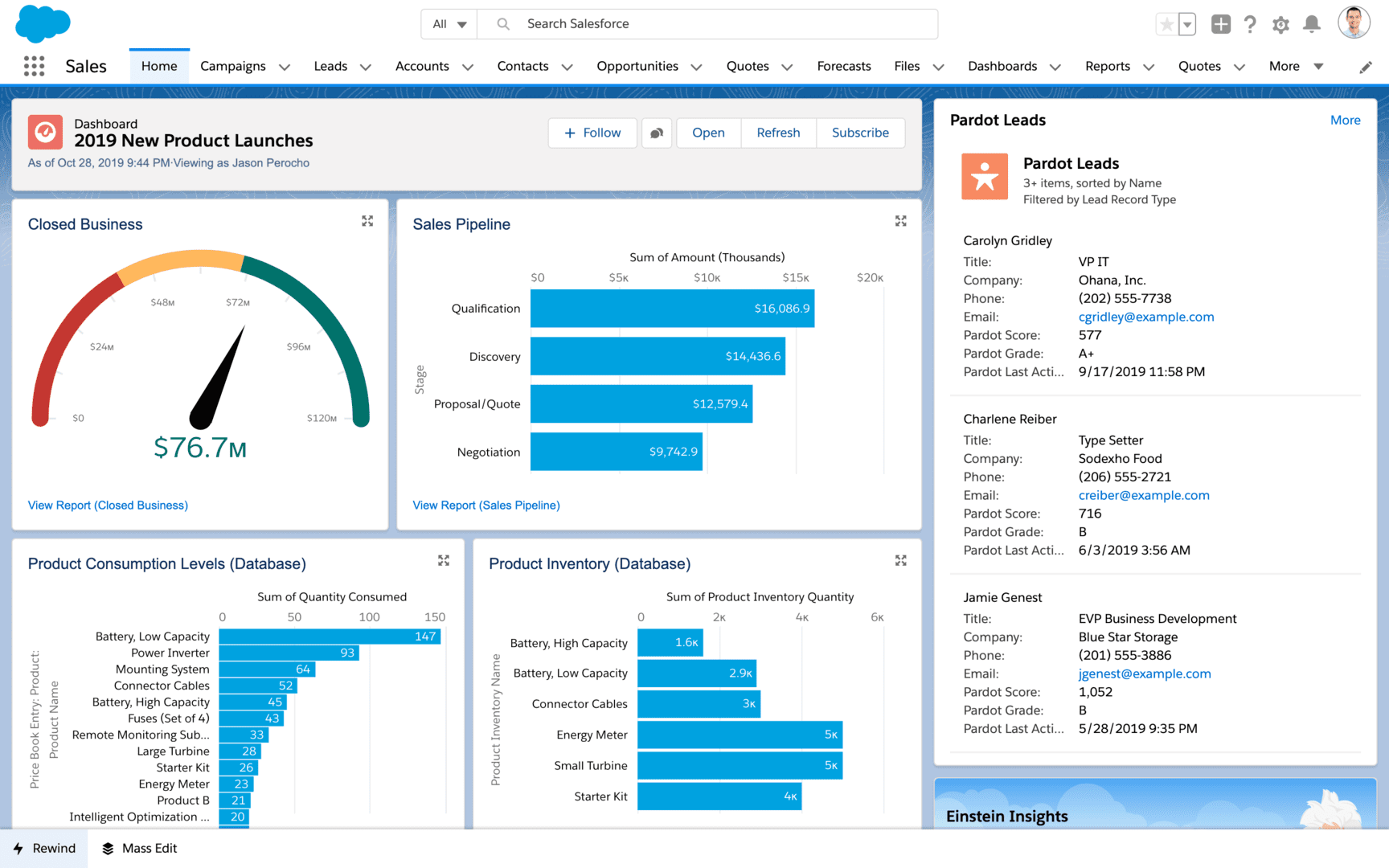
Salesforce is a universal cloud-based CRM system designed primarily for large, multitasking projects. This program is a cloud commerce platform. Users can create an intelligent shopping experience for their customers by integrating all their sales channels (mobile users, social media platforms, your online store, etc.).
For b2b business, there is a convenient Small Business Solutions package, which includes such basic features as:
- Generation of potential customers
- Management of contacts and opportunities
- Sales forecasting
- Automation of work processes
- Powerful analytics
- Various customizable tools for collaborative work and project managemen
Read a Detailed Salesforce CRM Overview
2. Snov.io CRM
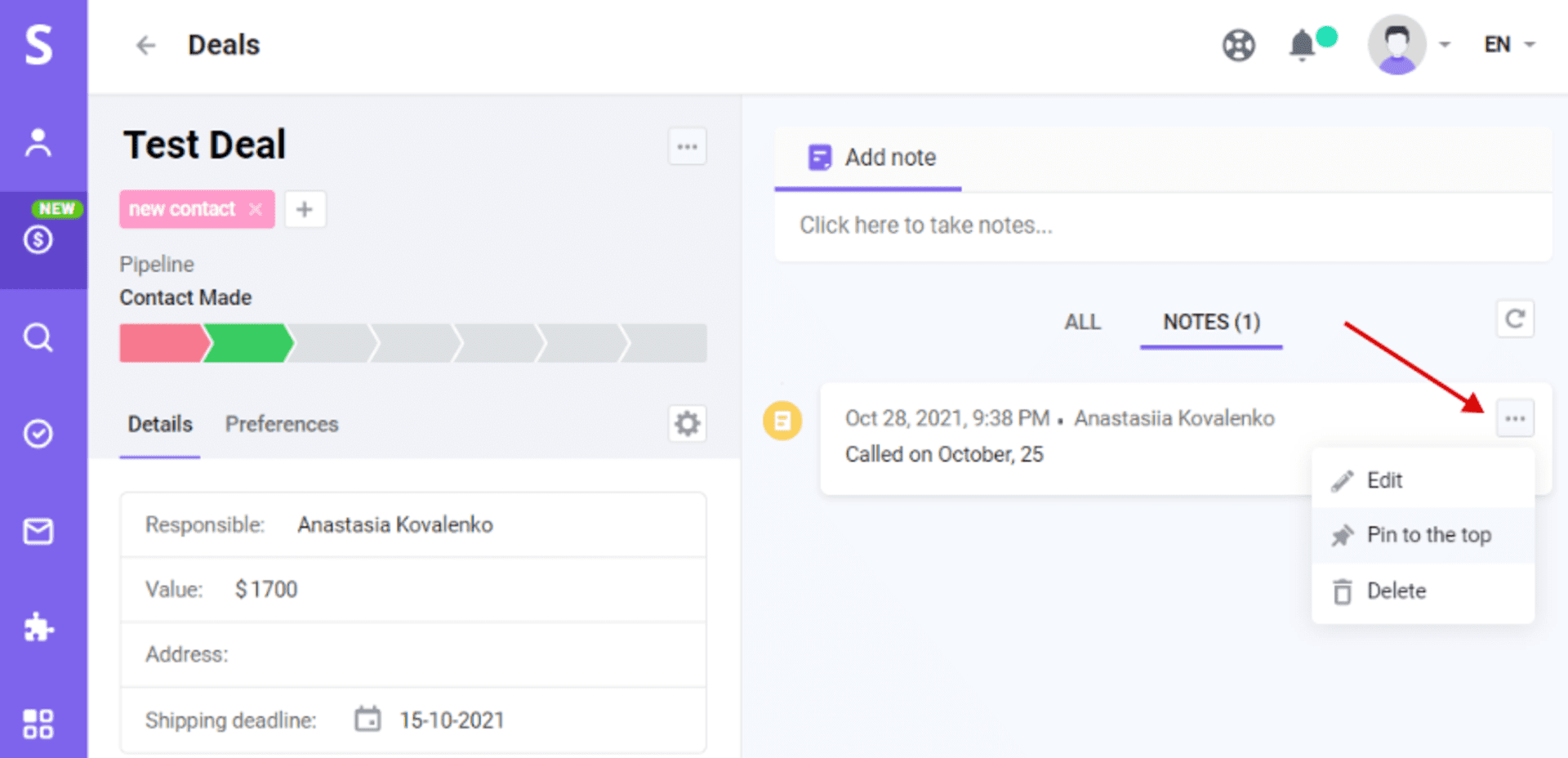
Snov.io is the perfect CRM for effective contact management and powerful cold outreach. Find converted leads, verify contacts, track lead progress. It's a SaaS platform that also provides some really handy Chrome extensions.
Save your sales team time and increase revenue with personalized automated calls and over 2,000 integration options.
Read a Detailed Snov.io Overview
3. Membrain
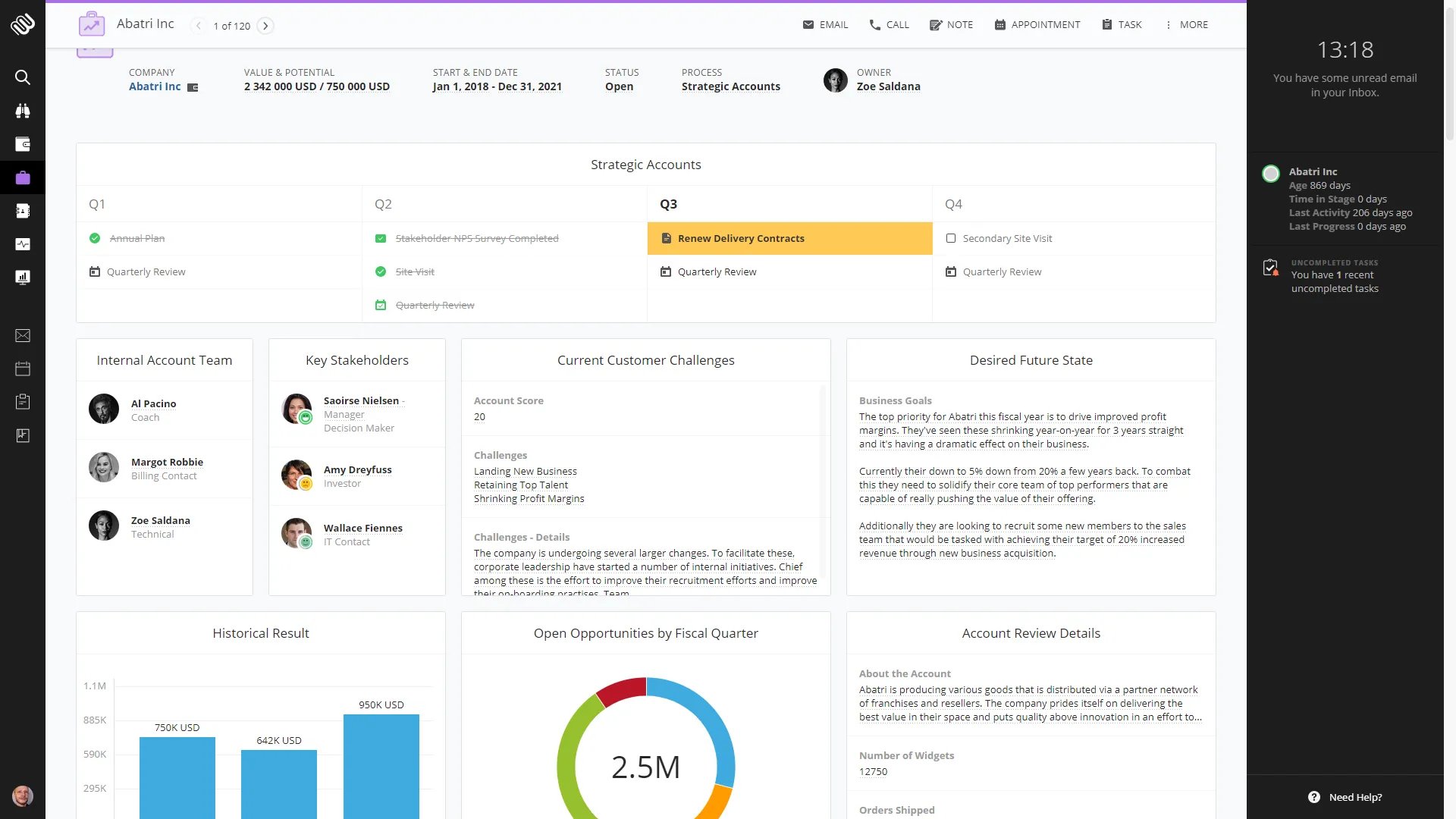
Membrain is an extremely user-friendly CRM for b2b business that simplifies processes for sales departments, increases training efficiency and is constantly improving. It helps drive the behaviors required in complex B2B sales to improve sales performance and achieve consistent performance. Membrain can replace or complement traditional CRM systems.
Trust of customers in more than 80 countries of the world.
Read a Detailed Membrain Overview
4. amoCRM
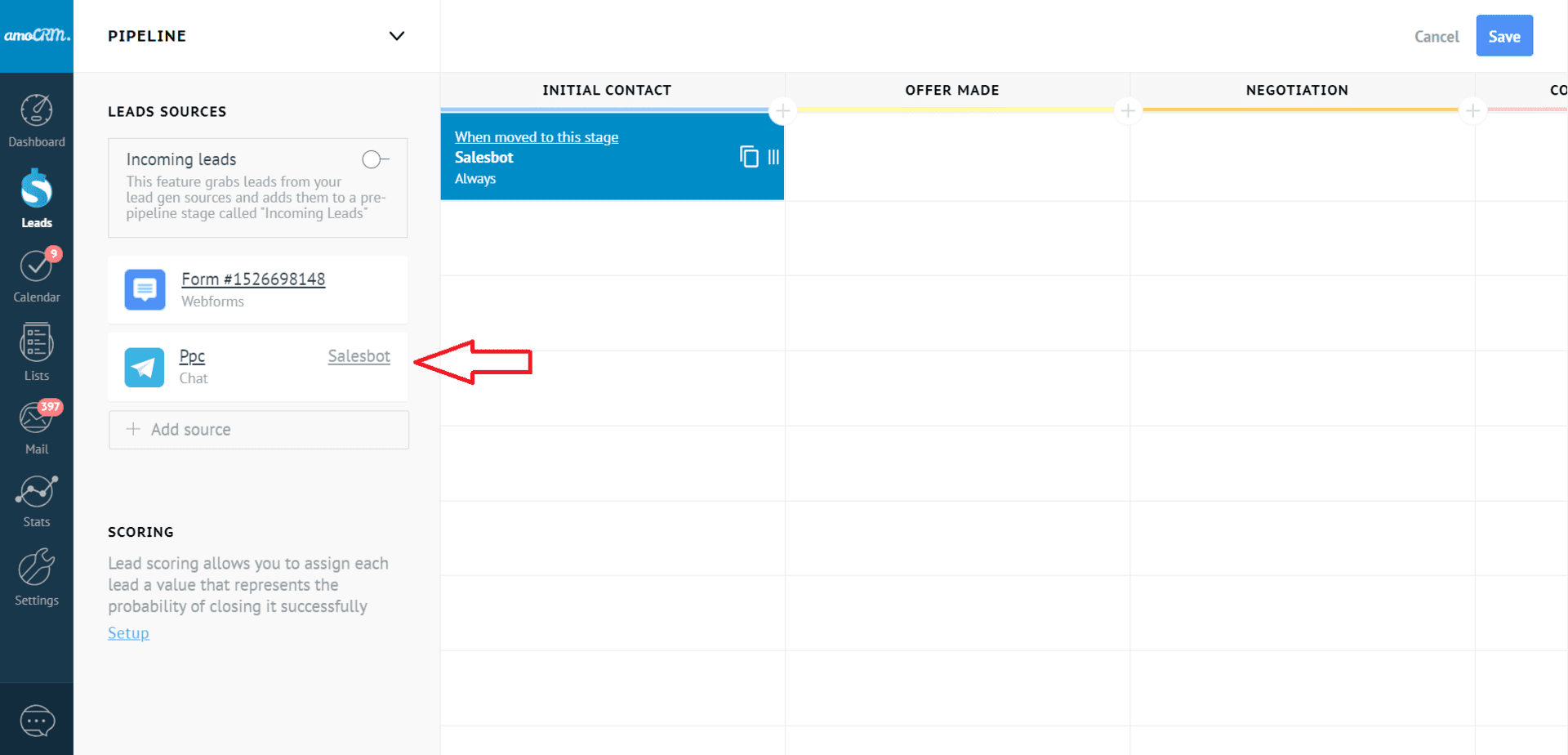
amo CRM is distinguished by a simple interface, with which you can customize the system to the needs of a specific business and easily integrate it with other services. The system interface is flexible, optimized for different devices and can be changed at the user's request. An important feature of amoCRM is the presence of a mobile application.
Opportunities:
- Funnel management
- Integration with mail and telephony
- Search and merge information on duplicate contacts
- Data backup
- Monitoring the activity of contacts
Read a Detailed amoCRM Overview
5. Nethunt CRM
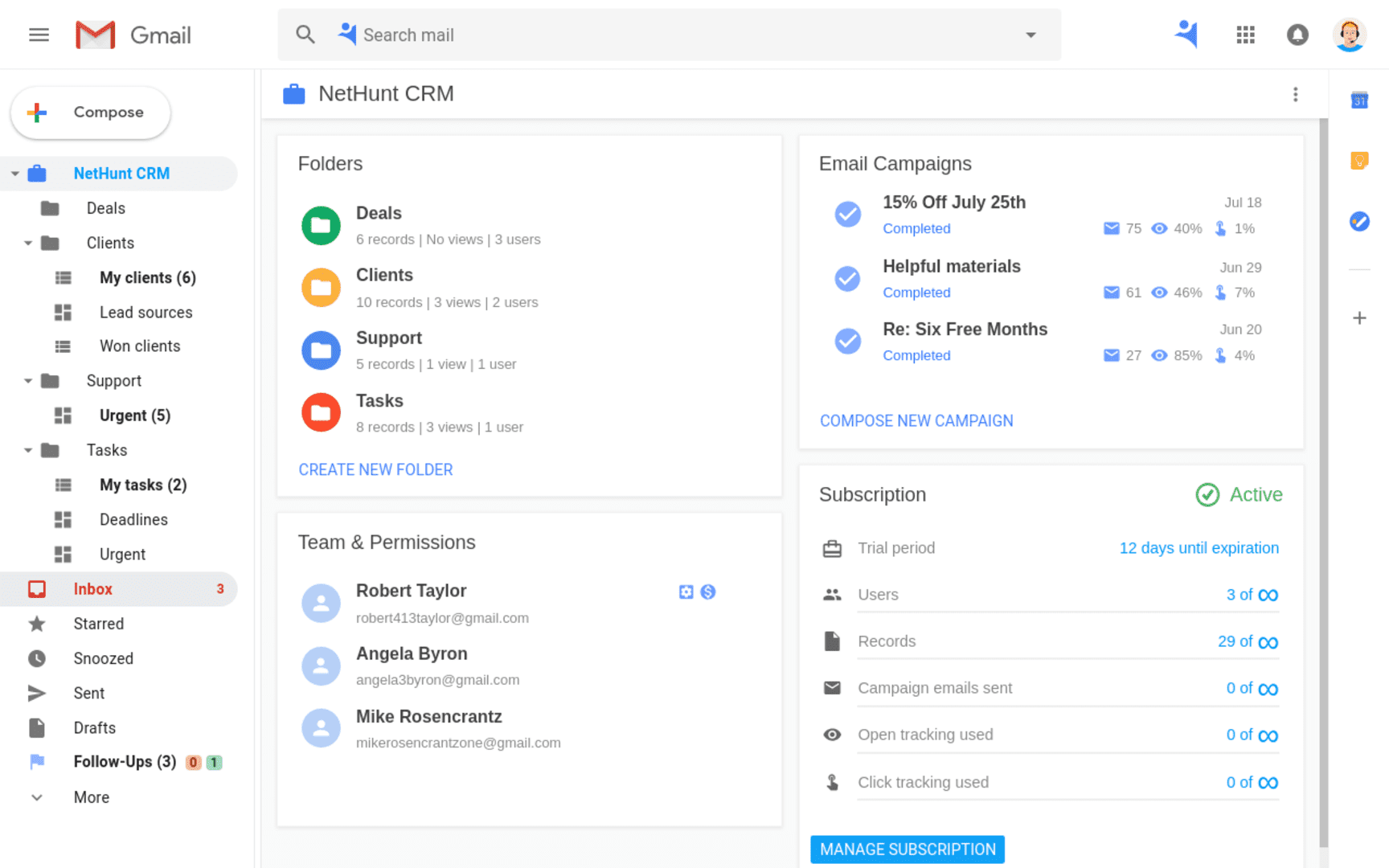
NetHunt CRM is a sales automation tool that helps you manage leads, maintain customer relationships, track sales progress, and close more deals.
This CRM has the best Gmail integration for 100% functionality:
- Client base
- Segmentation
- Sales pipelines
- Web forms
- Task
- Workflow automation in Gmail
- Email templates
- Email tracking
- Email campaign
Read a Detailed NetHunt CRM Overview
6. Microsoft Dynamics 365
Microsoft Dynamics CRM is a modern, powerful CRM system that helps organize sales, services and marketing. You can use a cloud or box solution. Easily integrates with other Microsoft products.
Opportunities:
- Manage contacts, support, sales, marketing and other data in one system
- Visualization of data on an advanced dashboard
- Automation of data processing processes using scripts
- Create Word and Excel file templates for quick reports
- iOS, Android, Windows and web apps available
Read a Detailed Microsoft Dynamics 365 Overview
7. retailCRM
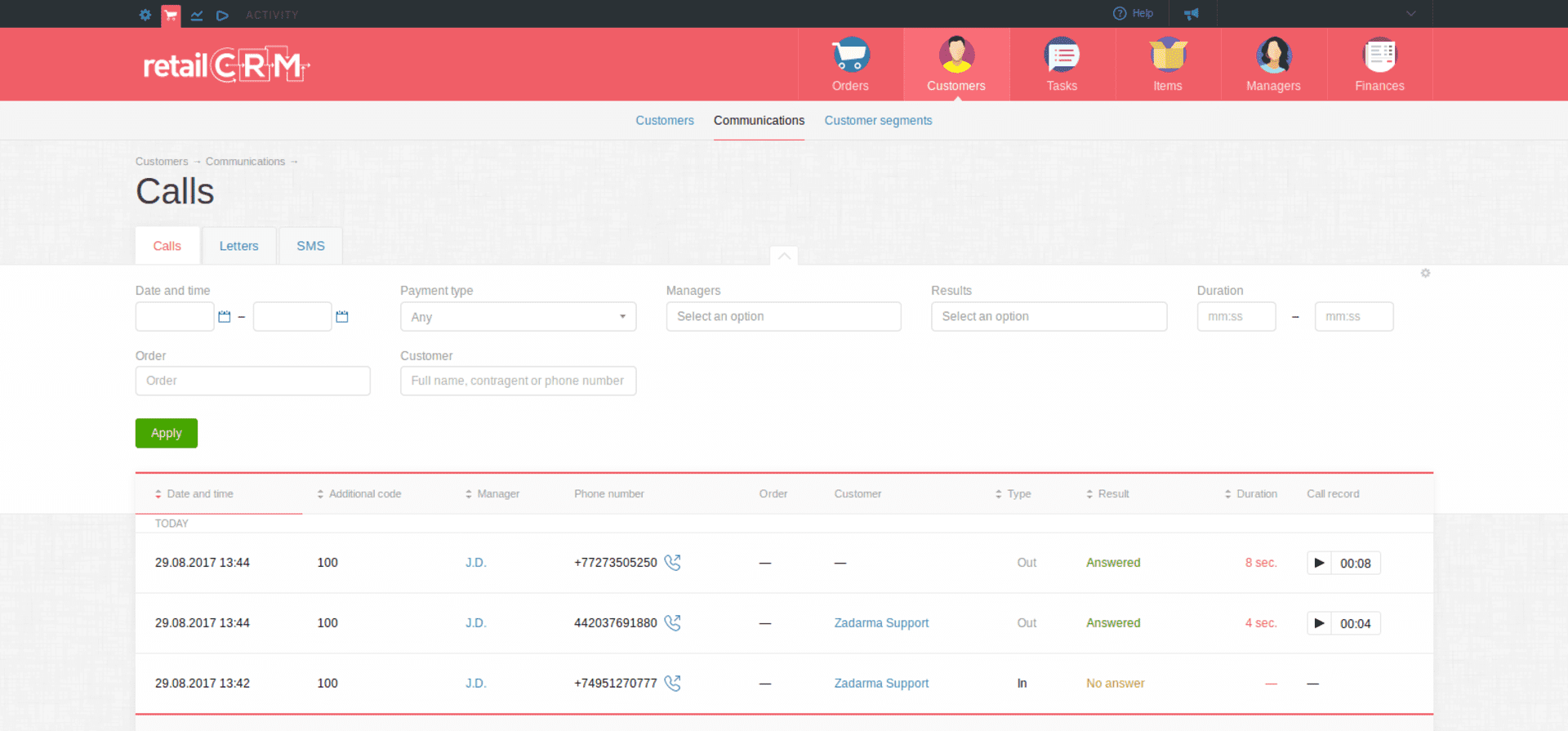
retailCRM is a specialized system for online trade. It helps automate order processing and in-store marketing.
Opportunities:
- Work in single window mode
- Ready integrations with CMS, IP telephony, delivery services, analytics, mail, 1C
- Product catalog synchronization
- A trigger system for automating actions
- CRM marketing and personalized mailings
- A single omnichannel engagement story
- Analytics of customers, employees, communications
8. vTiger CRM
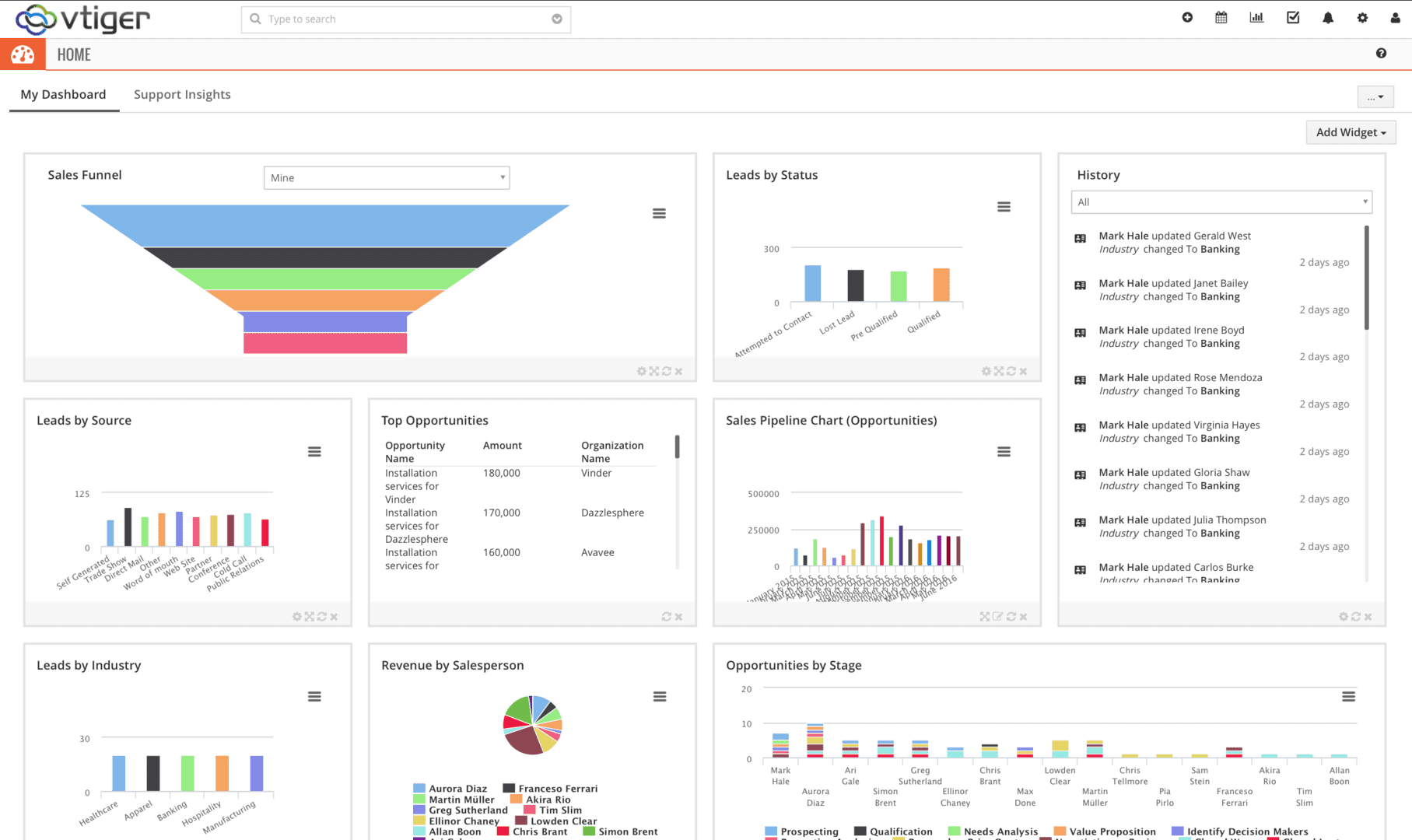
It's software that empowers customer-facing teams in small and medium-sized businesses to build fruitful and long-lasting customer relationships.
Vtiger CRM gives you a 360-degree view of all your customer information in one place and helps you optimize sales, support and marketing contacts with real-time actionable and conversational Insights.
Vtiger CRM helps B2B teams create great experiences throughout the customer lifecycle. AI-powered CRM and robust automation tools help sales teams focus on the right deals and drive growth.
Read a Detailed Vtiger CRM Overview
9. Nutshell
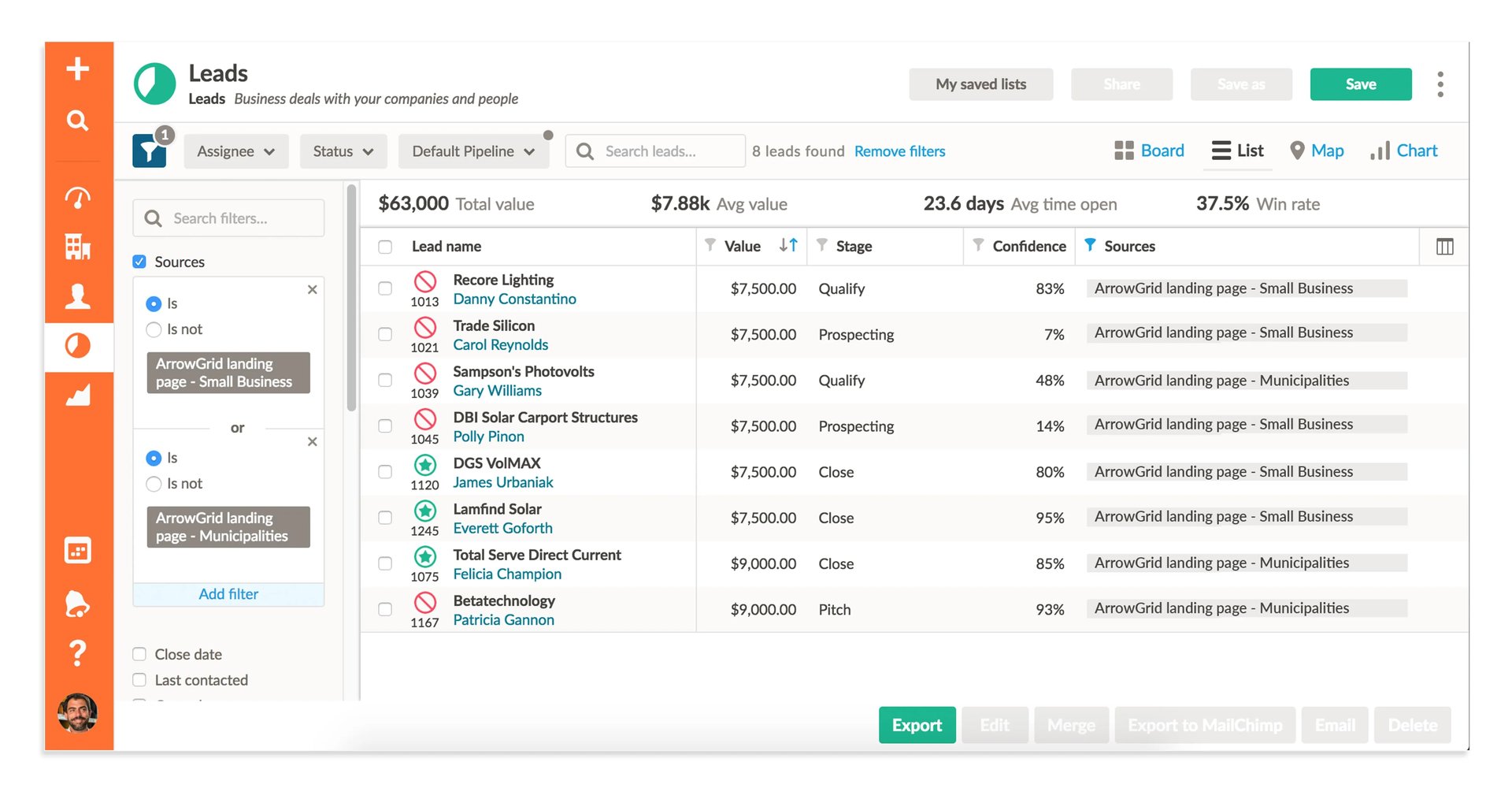
Nutshell is a globally popular CRM and email marketing platform that helps B2B organizations win more deals.
Simple enough for any user and functional enough for any business, Nutshell is designed for teams who are tired of juggling separate sales and marketing tools and don't want to pay a system administrator to manage their software.
Nutshell integrates with Google Workspace/Gmail, Microsoft Office/Outlook, QuickBooks Online, Intercom and Slack, among others.
Read a Detailed Nutshell Overview
10. Prospect CRM
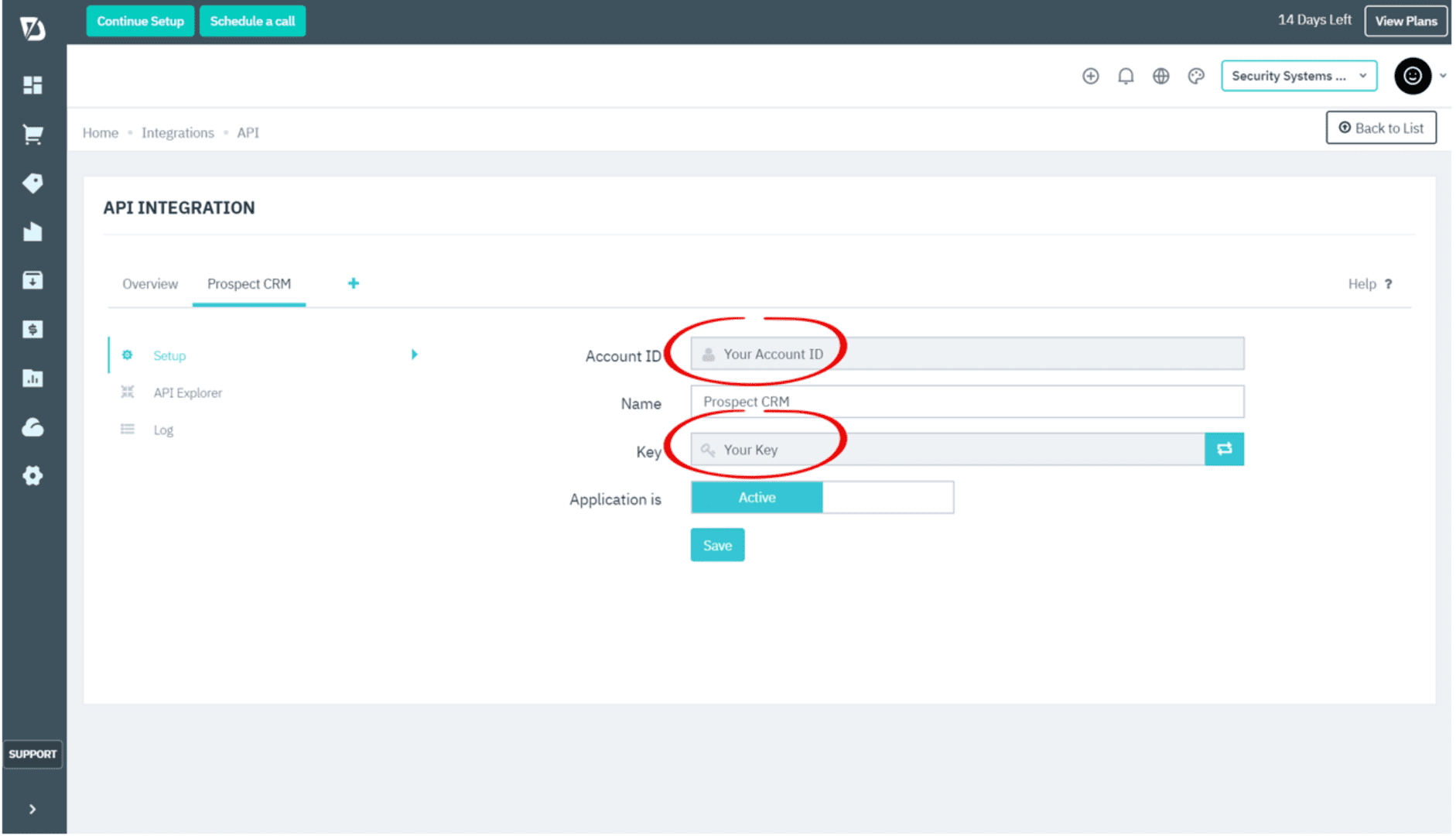
Prospect is an inventory-based CRM ideal for growing wholesale, distribution and manufacturing companies. With this program, you can sell more, in less time.
Prospect CRM combines the best of traditional CRM - marketing, sales pipelines and customer service management - with the realities of selling B2B products - quoting, ordering, inventory management, special pricing, reserve orders, product information and even contracts, serial numbers and tracking assets... so that your sales and service departments are fully aware of the inventory.
Read a Detailed Prospect CRM Overview
To Sum Up
That is why CRM systems for B2B must be implemented. They help not only to see the complete sales cycle, but also to control each stage, change it if necessary and adapt it to the client.
A CRM system for B2B is an inseparable tool of company development and improvement of its efficiency. Many tasks are solved, routine tasks and problems are removed, interaction with customers is improved.





